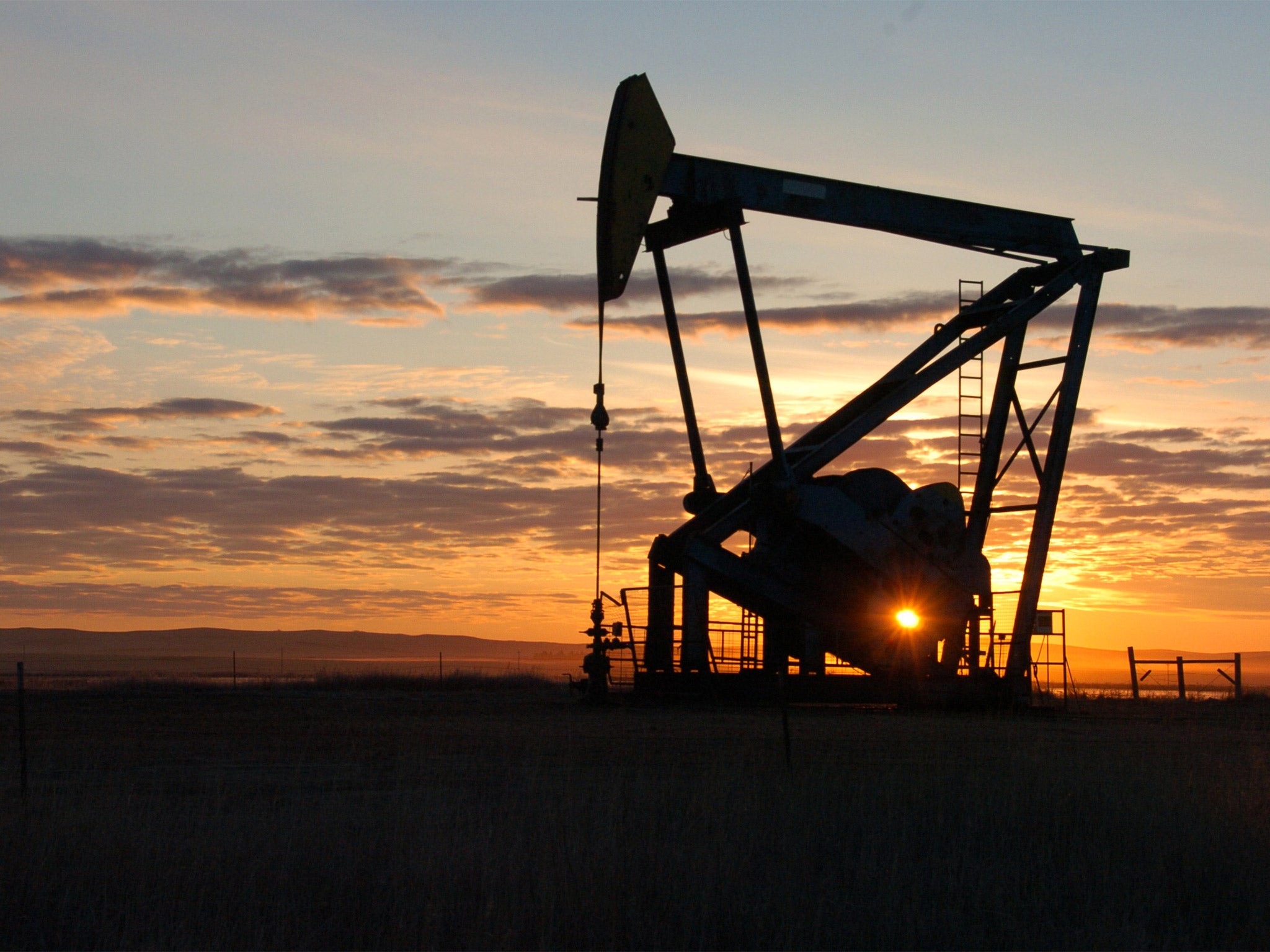Brent oil prices plunge below $59 a barrel
Prices have fallen by more than 40% this year on oversupply concerns

Your support helps us to tell the story
From reproductive rights to climate change to Big Tech, The Independent is on the ground when the story is developing. Whether it's investigating the financials of Elon Musk's pro-Trump PAC or producing our latest documentary, 'The A Word', which shines a light on the American women fighting for reproductive rights, we know how important it is to parse out the facts from the messaging.
At such a critical moment in US history, we need reporters on the ground. Your donation allows us to keep sending journalists to speak to both sides of the story.
The Independent is trusted by Americans across the entire political spectrum. And unlike many other quality news outlets, we choose not to lock Americans out of our reporting and analysis with paywalls. We believe quality journalism should be available to everyone, paid for by those who can afford it.
Your support makes all the difference.Oil extended losses on Tuesday, falling below $59 a barrel for the first time since July 2009 and heaping further pressure on oil exporters.
The value of “black gold” has fallen by 40 per cent this year as a result of both falling demand and increased supply. This has led to cheaper fuel prices but has hit other parts of the global economy.
Not only have billions been wiped off the value of London-listed companies like BP in recent weeks, analysts fear that spending across the industry could be cut by up to $1 trillion (£639.5 billion) and thousands of jobs lost in the UK.
The Bank of England also warned in its quarterly Financial Stability Report today that if oil prices remain at present low levels a threat to financial stability could materialise. It cited a possible decline in market value of the debt issued by American oil and gas firms, which it said accounts for 13 per cent of the US high-yield bond market.
The Bank also said low oil prices could push down prices in the eurozone, increasing the real cost of servicing debts in the single currency.
Away from the UK, Russia’s central bank was last night forced to raise interest rates from 10.5 per cent to 17 per cent to protect the value of the rouble, which has halved against the dollar amid falling oil prices and economic sanctions against the country.
Simon Smith, chief economist at FXPro said: “The move is probably the last conventional step from the central bank. Already the outlook for the economy is looking bleak for 2015, especially if the oil price remains around these levels.
“The central bank has admitted that oil at this level could see the economy contract by as much as 4 per cent next year. The authorities have clearly put financial stability above the interests of the economy, but this is not something that can be continued, so the way the rouble trades in coming days will be crucial.”
Join our commenting forum
Join thought-provoking conversations, follow other Independent readers and see their replies
Comments